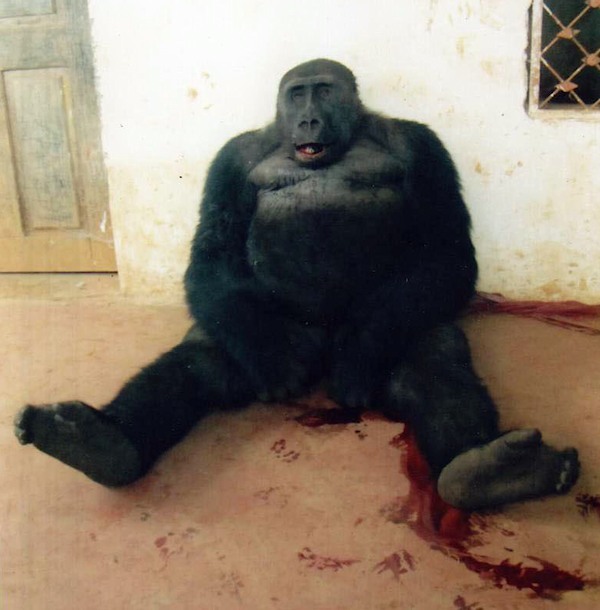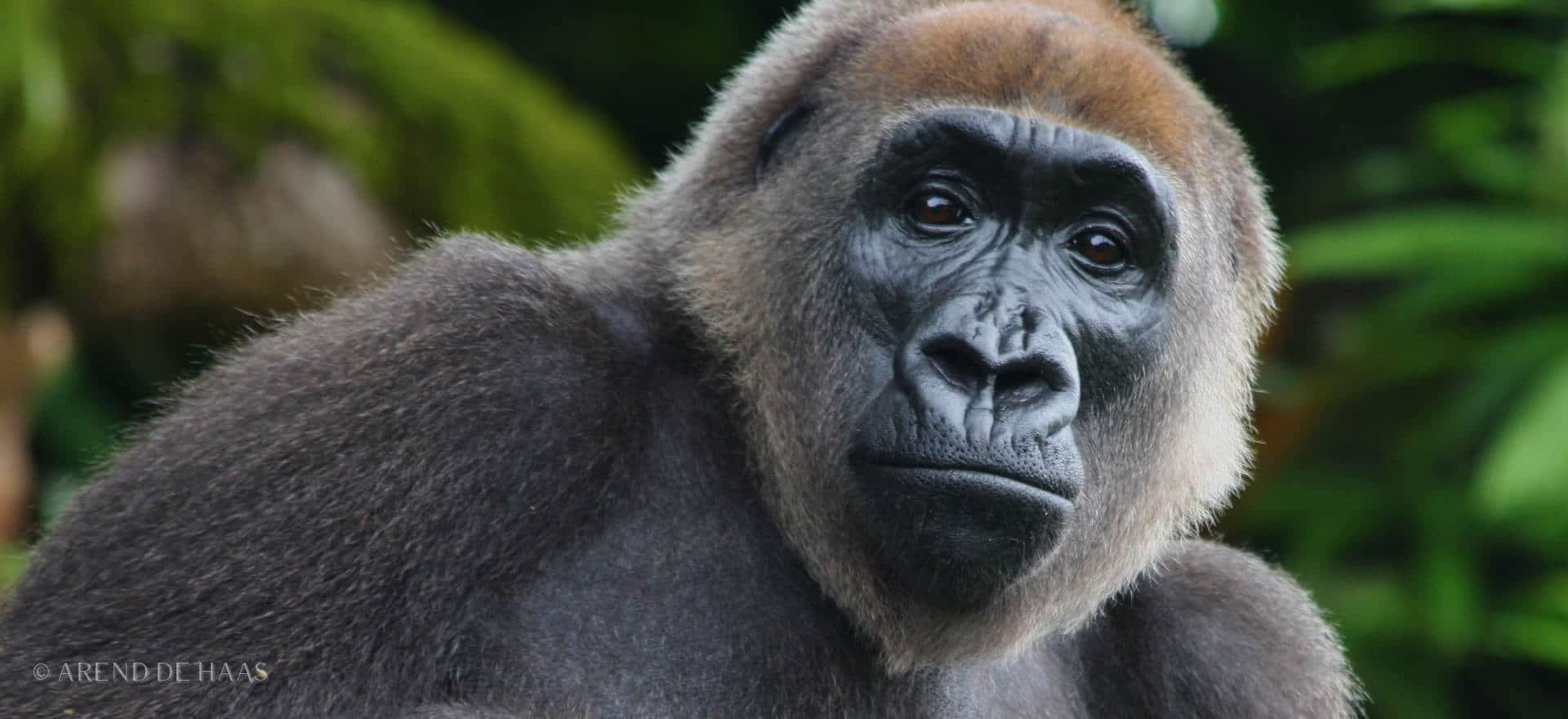GORILLA KILLINGS
The Cross River Gorilla is protected across its range, but isolated killings do occur. In such small populations, this can be serious. If the silverback is lost and the females have to join a new male, he may kill their infants in order to breed with them himself. Gorillas, here as elsewhere, are targeted not just for meat, but for their bones which are used in traditional medicine and as fetishes, and infants, if captured alive may be sold as pets.
2014- In March of 2014, a male Cross River Gorilla has been shot in the Lebialem Highlands near Pinyin in the Santa Sub Division of North West Cameroon. “The killing of this over 40-year silver-back was ordered by the Chief of Gendarmerie Brigade based in Pinyin”, according to Neba Bedes, wildlife expert working for the Environment and Rural Development Foundation (ERuDeF), “It was done in the name of “self-defense” without conducting the necessary security checks to determine whether this critically endangered animal is causing any danger to the local people.” It is alleged that over 45 bullets were used as well as clubs and stones to kill the gorilla, leaving it in a pool of his own blood.

2006- Two apes, possibly gorillas, were reported to have been killed in Bumaji, near the Okwangwo division of the Cross River National Park in October 2005. Since witness descriptions were unclear, these may have actually been chimpanzees, which are also a protected species. Apparently they were killed by a hunter who had heard the calls of a woman disturbed by them while she was collecting edible leaves in the forest. Due to the long lapse of time between the incident and the report in early 2006, very little evidence remained of what had happened. The hunter initially confessed, but later recanted, and the community refused to help with the inquiry. Two investigators from the Wildlife Conservation Society withdrew from the village after being warned it would be unsafe for them to remain there. It was also suggested that the report had only been made at this late date due to a local feud. Following this incident, a new ranger post was established nearby, and community rangers were recruited.
1998- A hunter was arrested for killing a gorilla at the Afi site. He was recognized as one of the most prolific hunters in the region, over a period of about 12 years. Alternative employment had been found for him several times by the charity Pandrillus, but each time he returned to hunting. In the realisation that more serious action needed to be taken to stop this individual, he was arrested.
1989- It was reported that twice as many gorillas were killed each year in Nigeria than were being born. At this time a single carcass could be sold for twice the usual monthly wage.
1986- 15 communities hunted in the known Cross River Gorilla range. Just one of these communities reported killing eight gorillas.
Taboo
The Cross River Gorilla, in parts of its range has been lucky in that traditional practices have discouraged hunting, since their meat is considered taboo (Kagwene, Bechati-Fossimondi, some people on Obudu Plateau). The people around Kagwene and Tofala Hill in Cameroon believe that gorillas are essentially human, and so eating their flesh would be tantamount to cannibalism. In other cases it is the sale of gorilla meat which is prohibited. The Boki people are obliged to share it with all their family members, which can be an inconvenience outweighing the benefits of the catch, if the family is widely dispersed.
Conservation
Our long-term conservation and monitoring programme, involving local forest management committees and training community members helps prevent the killing of gorillas. In case of ‘problem animals’ we assist the communities with the help of the Cameroon authorities. The prolonged presence of researchers and improved law enforcement is also helping to stop gorilla killings.

